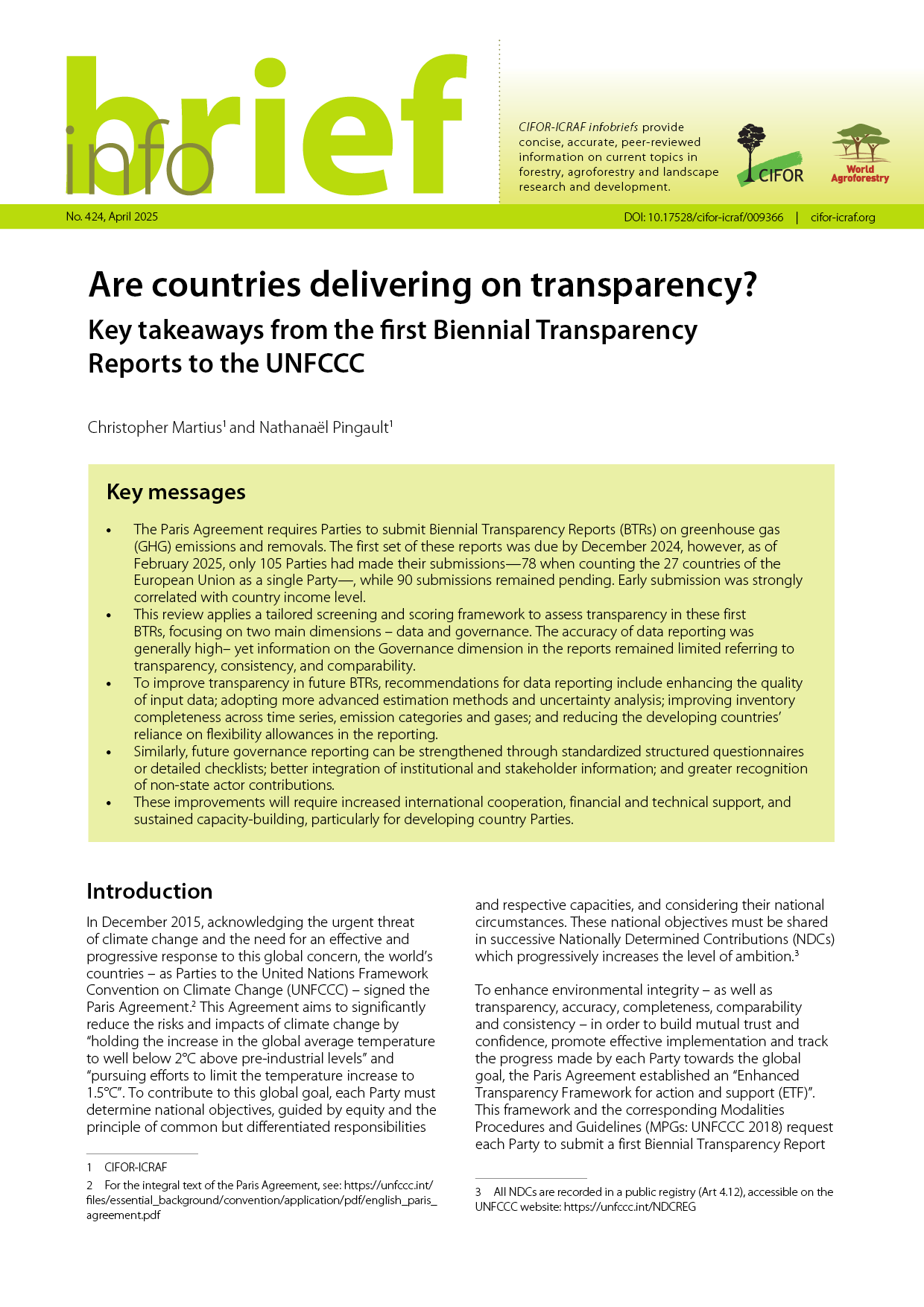Key messages
- The Paris Agreement requires Parties to submit Biennial Transparency Reports (BTRs) on greenhouse gas (GHG) emissions and removals. The first set of these reports was due by December 2024, however, as of February 2025, only 105 Parties had made their submissions—78 when counting the 27 countries of the European Union as a single Party—, while 90 submissions remained pending. Early submission was strongly correlated with country income level.
- This review applies a tailored screening and scoring framework to assess transparency in these first BTRs, focusing on two main dimensions – data and governance. The accuracy of data reporting was generally high– yet information on the Governance dimension in the reports remained limited referring to transparency, consistency, and comparability.
- To improve transparency in future BTRs, recommendations for data reporting include enhancing the quality of input data; adopting more advanced estimation methods and uncertainty analysis; improving inventory completeness across time series, emission categories and gases; and reducing the developing countries’ reliance on flexibility allowances in the reporting.
- Similarly, future governance reporting can be strengthened through standardized structured questionnaires or detailed checklists; better integration of institutional and stakeholder information; and greater recognition of non-state actor contributions.
- These improvements will require increased international cooperation, financial and technical support, and sustained capacity-building, particularly for developing country Parties.
DOI:
https://doi.org/10.17528/cifor-icraf/009366Dimensiones Recuento de citas:
Año de publicación
2025
Autores
Idioma
English
Palabras clave
greenhouse gas emissions, climate change, monitoring, data analysis, governance, reports


















